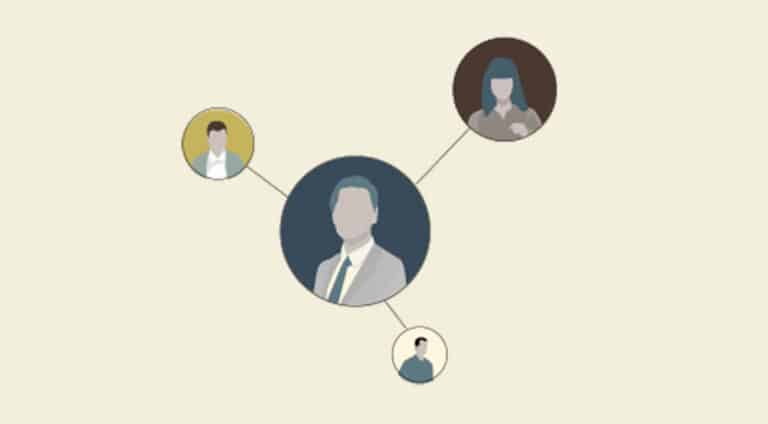
Artificial intelligence (AI) is advancing at an unprecedented pace, with applications spanning industries as diverse as healthcare, finance, and entertainment. The legal field, while traditionally resistant to change, is no exception.
Legal AI is becoming an essential tool for law firms, corporations, and legal professionals who seek efficiency, data-driven insights, and a competitive edge. However, due to the complexity of the law, AI alone cannot address all the nuances that legal professionals deal with daily.
So why are attorneys the key to smarter, more reliable legal AI systems? The answer is that attorneys need to serve as critical collaborators to improve the performance and reliability of legal AI. Working together, human attorneys and AI are molding the future of the practice of law.
The Expertise Gap in Legal AI
While AI excels at processing vast amounts of data with speed, one significant area where it falls short is context. The legal field is inherently complex, filled with nuanced language, jurisdictional variations, and intricate reasoning. For instance, the distinction between terms like “binding precedent” and “persuasive precedent” or the specificities of state versus federal laws often baffles AI models unfamiliar with such intricacies.
Why AI Struggles with Legal Context
At its core, AI relies on training data. Without enough properly annotated legal documents, even the most advanced models fail to grasp the finer details of legal analysis:
- Ambiguity in Language: The same term can have vastly different implications depending on the context.
- Jurisdictional Differences: Laws vary from state to state, and AI models often struggle to adapt without explicit jurisdictional guidance.
- Specialized Knowledge Requirements: Complex fields like intellectual property or environmental law demand expertise that takes years for humans to acquire, and AI lacks this foundational understanding.
The Limitations of AI Without Human Oversight
Without human input, legal AI systems risk generating errors. These errors could be mis-categorizing a key section of a contract or misinterpreting a statute. These errors can lead to trust issues and prevent widespread adoption of AI in legal settings.
How Attorneys Improve AI Systems
Attorneys play a pivotal role in training and refining legal AI tools by bridging the gap between machine efficiency and human expertise. Here’s how:
Expert Data Annotation
Training AI requires accurately labeled data, and attorneys bring invaluable domain expertise to this process. They categorize legal documents correctly, identify key terms, and provide precise annotations.
- Example: A litigation attorney annotates a complaint by marking sections for “causes of action,” “jurisdiction,” and “relief requested,” ensuring the AI understands the structure of legal pleadings.
- Outcome: Higher-quality training datasets lead to more accurate AI predictions and analyses.
Continuous Quality Review
Attorneys function as quality controllers, ensuring AI outputs align with the rigorous standards of legal practice.
- Example: After an AI drafts a non-disclosure agreement, an attorney reviews the draft for completeness and accuracy, providing feedback that is fed back to the AI to reduce future errors.
- Outcome: AI systems gain reliability, fostering trust among end-users.
Jurisdiction-Specific Annotation
Legal interpretations often vary depending on the jurisdiction, which makes annotation a complex task. Attorneys ensure that these nuances are reflected in the AI training data.
- Example: A tax attorney annotates documents with state-specific compliance requirements, helping the AI specialize in understanding local regulations.
- Outcome: Legal AI tools become better equipped to handle jurisdiction-specific cases, improving user experience across regions.
Benefits of Attorney-Trained Legal AI
The combination of legal expertise and AI technology results in several critical benefits:
- Improved Accuracy
Errors in legal processes can be costly and time-consuming. Input from attorneys dramatically reduces inaccuracies in AI outputs, enabling better decision-making.
- Faster Learning for AI Models
With cleaner, expertly annotated datasets and continuous feedback loops, AI systems learn and improve at a faster pace.
- Enhanced User Trust
When lawyers know that legal AI tools have been trained and validated by their peers, they are more likely to rely on these systems for their day-to-day needs.
LAWCLERK’s Role in Advancing Legal AI
LAWCLERK is at the forefront of bridging the gap between legal professionals and artificial intelligence. With its nationwide network of 10,000+ licensed attorneys, LAWCLERK provides human-in-the-loop (HITL) solutions that elevate AI systems to new levels of robustness and reliability.
Services Offered by LAWCLERK
- Expert Data Annotation
Attorneys can provide precise labeling of legal documents, from complex contracts to nuanced litigation files.
- Continuous Quality Review
LAWCLERK attorneys can review and ensure AI systems generate reliable outputs, refining them using human feedback loops.
- Jurisdictional Expertise
LAWCLERK can connect AI companies with freelance lawyers who can annotate documents following jurisdiction-specific guidelines.
Flexible Engagement Models
Whether it’s a one-off project requiring annotation of thousands of documents or an ongoing quality assurance partnership, LAWCLERK’s scalable solutions cater to various client needs. We can work with AI innovators to provide custom solutions.
Attorneys and AI Leading the Future of Law
The collaboration between human expertise and technological innovation is transforming the legal industry. Attorneys bring the understanding, context, and nuance that AI models require to excel in legal tasks. Platforms like LAWCLERK create opportunities for attorneys to contribute to this new era of legal technology, ensuring that the AI tools of tomorrow are trustworthy, efficient, and accurate.
For organizations developing legal AI or law firms looking to adopt these tools, leveraging attorney expertise is non-negotiable. Together, attorneys and AI aren’t just making the practice of law more efficient; they’re shaping its future.
Are you ready to elevate your legal AI tools? Want to learn more about how you can do that?
Download our White Paper on how attorneys are the key to training tomorrow’s legal AI.
Want to talk to a member of our team? Book a Demo today, or call us at 725-272-2999





